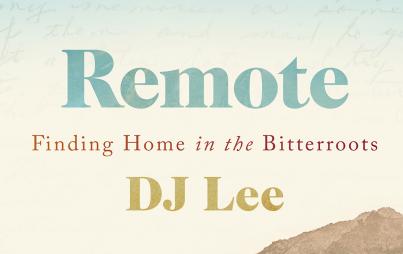
Every article I find is an opportunity to think more critically about my own craft.
It would’ve been a whole lot easier if the writing fairy had dropped out of the sky and told me what to do, instead of wasting months and months trying to figure it out.
“It seems like you’re publishing an article every other day,” a friend mentioned casually over lunch. “I’m lucky if I can write just one in a week. How do you keep churning them out?”
I get asked variations on this question a lot, and my response is usually something like, “I don’t know, coffee?”
Because I’m still so new to writing as a profession (it’s a career I basically tripped and fell into, if I’m being honest), it feels weird to give anyone advice when I’m still figuring it all out myself.
But when I sat down recently to really consider the question, I could remember the times when writing was the most difficult for me — and I also remember what changes helped me to break out of that rut.
And honestly? It would’ve been a whole lot easier if the writing fairy had dropped out of the sky and told me what to do, instead of wasting months and months trying to figure it out.
So I’m writing this with the hopes that I, your writing fairy, am saving you a hell of a lot of time by giving you this advice upfront.
Here are some pretty basic tips that have helped me to improve on my craft (and, as my friends say, “churn them out”).
1. I decided to treat myself like, you know, a human being.
This seems kind of counterintuitive because when I think of a writer, I picture a disheveled person with a bottle of scotch, having not bathed or cleaned their apartment in who-knows-how-long, agonizing over a manuscript. In other words, I see a mess.
This reminds me of my “I’m not going to eat for eight hours and I’ll drink coffee to keep me going and suppress my appetite” phase.
During that phase, I was a mess. And also, shocker, not a great writer.
Sometimes writers are expected to be publishing machines (because, well, capitalism) and they neglect themselves in the process. But for me, taking care of myself and keeping myself sane has actually helped my writing in the long run.
Because while keeping myself amped up on coffee and not getting much sleep certainly got me going in the short-term, I always ended up crashing — and recovering from that crash canceled out any benefits from my momentary caffeine-driven burst.
tl;dr? Take a fucking shower. Eat a good breakfast, lunch, and dinner. And for crying out loud, clean up your workspace a little. I have no statistics to back this up, but my running theory is that too much clutter inhibits your creativity (well, it does for me, anyway).
2. I realized I was a morning person (among other things).
I don’t know about you, but I absolutely loathe getting up or doing anything before 11 AM.
But as it turns out, I’ve noticed that if I start working at at 8 or 9 AM, I am far more productive and focused. The bulk of my work always gets done before noon. Go figure.
I also know that at about 3 PM, I’m done. It’s like clockwork. Ask me to write anything at 3 PM and we’re both screwed.
So I started getting up at 8 AM and working in earnest at 9 AM. I do my most difficult assignments in the morning, and I take an hour break at 3 PM to go for a walk or eat a snack. And if I didn’t finish something in the morning, I save it for my second wind that comes in at 4 PM.
What I’m saying is that the schedule you may want to keep may not be the schedule you need to keep. I thought working from home meant that I could sleep in and start in the afternoons, but as it turns out, my best work happens on a totally different schedule than the one I’d prefer.
Start paying attention to the times that you work best. And if you can build your schedule around those hours, do it — even if it means you can’t sleep in.
3. I put all my ideas in one place (even the terrible ones).
I have a Google Doc that I named “Topics.” It’s literally just a list of potential headlines or a one-sentence summary for articles that have popped into my head.
I keep that tab open at all times.
Every idea I have, even the ones that seem ridiculous or stupid, get tossed into that document. And sometimes, an idea I thought was terrible ends up linking with a later idea, and I’ve got the beginnings of an awesome piece.
(Remember the saying “there’s no such thing as a stupid question”? While I may not agree with that exactly, I do think many of the writing ideas we initially consider useless can actually be reworked over time into some brilliance. Some of my best pieces started off this way.)
Keeping all my thoughts in one place means that, if I can’t think of something in the moment, I have an entire pile of ideas to sort through. This has helped immeasurably.
Bonus: I also give my (trusted, favorite) editors access to the Google doc, so if they like something they see, they can assign it to me. If I think a topic is a good fit for their publication, I write in parenthesis the name of the publication so they know to read those first.
It’s gotten me quite a few assignments without the headache of having to email and pitch them. Pretty sweet deal.
4. I took up Pilates (no, seriously).
I spend so much time stuck in my own head that it has become really important to find some form of movement to incorporate into my life. Something that involves less thinking and, you know, a little more being.
I took up Pilates. Not because I’m looking to tone my muscles or whatever it’s called, but because for three hours every week, I’m not thinking about my personal brand or my next piece or my blog stats — I’m just present in my body, unplugged, getting my endorphins going.
This could also be called “me time” and it could be yoga, Zumba, or a solo session with your Hitachi. Whatever works, just make sure you feel good and you aren’t checking your phone while you do it.
5. I stopped skimming and started reading.
I used to waste a lot of time just skimming a bunch of articles and never actually engaging with 75% of them. But actively and thoroughly reading really good writing has helped me improve more than I expected.
Every article I find is an opportunity to think more critically about my own craft. As I read, I ask myself these questions:
What about this headline made me click on the article? What keeps me reading? What did the writer do well? What would I have done differently and why? What is one trick from this piece that I could try out next time in my own work?
When I was in graduate school, a lot of my mentors told me that good writers are also good readers. I try to keep that in mind.
6. I work with editors that give a shit about my work (when possible).
I realize that sometimes we hand over our work just to get the paycheck, which is totally fair. But whenever I can, I take my writing to the editors that really believe in my voice and my work. The ones who give great feedback, the ones who care about my success, the ones who are invested.
Could I take it to a bigger publication to get more exposure? Sure. Could I get paid more for this? Maybe. And sometimes I’ll do that if I need to.
But more often than not, I try to take my favorite pieces to the editors that I know will challenge me and support me. I seldom publish with platforms that will publish my work “as-is” or the ones who offer little feedback to their writers because they don’t give a shit.
I avoid the editors that care less about the integrity of my voice and more about the views they’ll rack up with a dishonest angle or clickbait-y headline.
Sometimes I don’t have a choice. But when I do, I choose the editors that are in my corner and believe in what I’m doing. It not only challenges me to grow, but it motivates me to do my best work.
7. I didn’t abandon my blog (even if it doesn’t pay — and especially because it doesn’t).
Sometimes I need a space where I can write, unfiltered, and experiment with a new style, voice, or approach. When I’m not motivated by pay or page views, I’m not bogged down by the pressures and can do some pretty exciting work.
It’s tempting to abandon my blog sometimes because I’m not making money off of it. It can also be tempting to go all-in and monetize my blog. But instead, I try to maintain it as a space that’s just for me and the supportive community that I’ve built there.
I might be doing it for free, but sometimes it’s good to reconnect with writing as my passion first and foremost instead of being driven by writing as my profession (plus, I’ve gotten some of my best writing gigs from editors who found my blog — and if nothing else, it’s a great portfolio).
8. I gave up on freelancing full-time.
I once freelanced as a writer for my full-time job and it sucked me dry. I was constantly writing — and I mean constantly — to the point where it felt like I was a machine instead of a writer. I realized that writing that often and under so much pressure was diminishing the quality of my work.
Some people can freelance full-time and it’s what they love doing. But what I’ve found is that my best writing started happening when I took on an editing position as my day job and elected to write on the side.
Not only does the steady paycheck help keep me sane, but editing in particular taught me the nuts and bolts of what makes a publication tick and what makes good writing so damn good.
It can be hard to find a day job that really complements your writing, but if you can, I’d recommend looking at gigs like editing or social media that can build on relevant skills without draining your creative energies.
And that way, if you ever need to take a break from writing altogether, you aren’t stuck.
9. I no longer force it.
This one is pretty simple: I stopped trying to force myself to write when my heart wasn’t in it. I learned to walk away from the computer when shit wasn’t working. I started taking naps, taking walks, and taking snack breaks.
Self-care isn’t a waste of time. It’s a great way to replenish our creativity so we can give our work the full range of our abilities and talents when the timing is right, instead of creating something mediocre because we were pulling teeth.
10. I found a new living situation.
Again, not everyone is in a position to get up and move. But my writing was by far the worst when I was living somewhere that I was unhappy or somewhere that was just plain toxic.
When I moved to my current apartment — which, I’ll admit, was more expensive than I would’ve liked at the time — my writing improved noticeably and I was able to get so much more done.
Some compromises can include redecorating, finding a new cafe, or if all else fails, investing in some good noise-cancelling headphones. Your surroundings can make a huge difference. Don’t underestimate the impact of a shitty apartment, busy street, or a lousy neighbor.
What are your best writing tips? Share them with us in the comments below!








